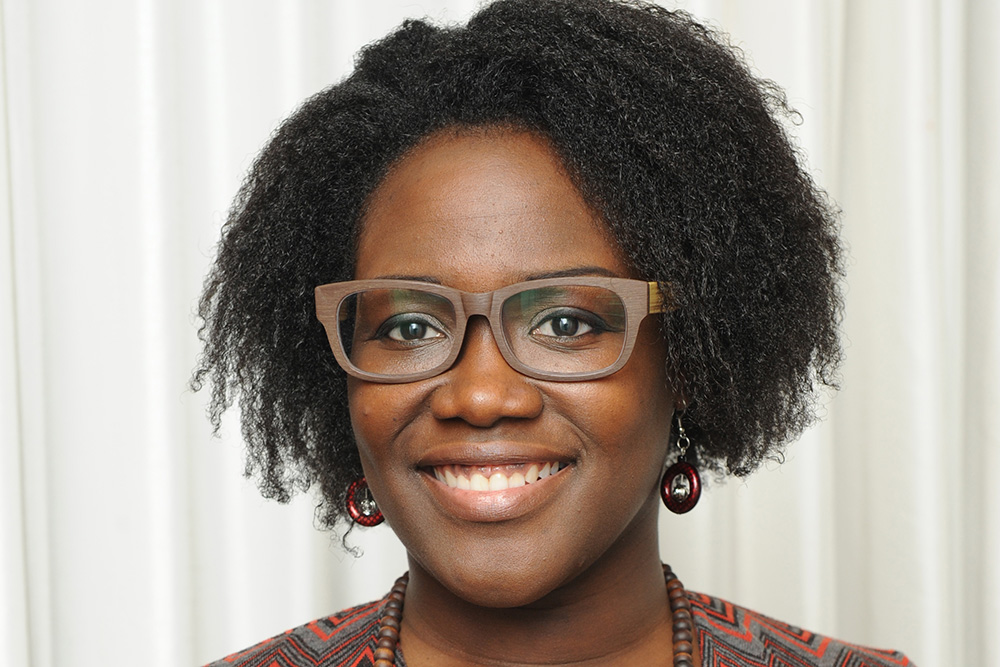The woman walked into the store, drinking a can of beer, and asked for help with her cell phone account.
Doaa Magdy politely informed her that she had to drink the beer outside.
“Fuck you, black bitch,” the woman responded.
Magdy stood frozen as her co-worker ushered the woman out of the store. She then went into the bathroom, and cried.
“It was very hurtful. I felt like someone just stabbed me,” she says. The incident brought back memories of being called “Blackie” and being harassed throughout her life because of her dark skin.
Racism hurts. But it is also an important determinant of health that has yet to receive enough attention, experts say. Extensive American and British research shows that chronic discrimination is correlated with depression, anxiety, post-traumatic stress disorder and stress-related problems like hypertension and heart disease.
In the days following the incident, Magdy found herself crying and having painful flashbacks of the woman’s cutting words and the painful memories of racial discrimination it surfaced.
Magdy was born in Egypt, and spent the first five years of her life in Alabama, before moving back to Cairo. Her darker skin and curly hair led to ridicule at school and on the streets. When she was nine, her father died. That’s when her depression began, she says.
When she turned 13, she started getting her hair straightened. To this day, at the first sign of her emerging natural curls, she loses “all her confidence and self-esteem.”
Seven years ago, she moved to Vancouver, where her depression was compounded by the racism and Islamophobia she experienced.
“I was wearing my headscarf for the first few months, and I could just feel and see that I was treated differently than my friends,” she says. “I felt like people were afraid to talk to me.”
On the SkyTrain one day, a man saw her in her hijab and yelled “You terrorists, go back to your country!” Magdy got off the train, and a woman came after her and apologized. Magdy smiled and thanked her. But she stopped wearing the hijab soon after.
“When I was wearing it, I felt I had so much pressure because it was my duty when I travel to represent a positive image of my religion,” she says. “Even if I had a bad day, I felt I had to always draw a fake smile — what would people think of Muslims as a whole?”
The discrimination, combined with homesickness and trying to navigate a new climate and culture, deepened her depression.
Racism impacts health, but we lack specifics
It likely comes as no surprise that experiences of racial discrimination can take a drastic toll on a person’s mental and physical health.
But in Canada, information on the role of racism as a determinant of health is scarce. Researchers have tracked the impact of poverty, environment, employment and other factors. But a lack of data on race, ethnicity, sexual orientation and health has made it difficult to provide evidence of discrimination’s effect on health outcomes.
Dr. Onye Nnorom wants to change that. She’s the black health lead for the University of Toronto’s medical program and associate director of public health and preventive medicine for the school’s residency program, and is trying to better understand how racism affects health outcomes in Canada.
As a first step, she’s urging public health officials to begin collecting race and ethnicity data to allow identification of specific challenges faced by minority groups and find solutions. The United Nations’ Working Group of Experts on People of African Descent raised similar concerns in a preliminary report after their Canadian visit last fall.
Nnorom said diverse populations are currently lumped together under “visible minority” or “immigrants” when health information is gathered. “We’re not seeing that certain groups have specific health and social issues that are distinct within the group, and experiences of racism that also vary within that group,” she said.
For example, Nnorom said, black and Indigenous children are more likely to be placed in foster care and remain in care longer. They are more likely to drop out of school. In Ontario, they are three times more likely to be incarcerated than non-blacks.
And a 2015 Statistics Canada study revealed that second-generation black Canadians earn 10 to 15 per cent less than second-generation white Canadians, even when results are adjusted to reflect educational levels of education.
“For instance in Montreal, if you’re a black person who’s graduated from university, your odds of getting a job are lower than a non-black high school dropout,” Nnorom said, in reference to a study from McGill University.
All those factors are determinants of health, she said. They could help explain why black Canadians have higher rates of hypertension and diabetes, or why a 2012 report by the Wellesley Institute found black immigrants in Canada were 76 per cent more likely to assess themselves as “unhealthy” than other racialized groups.
But the lack of data limits research that could lead to understanding and solutions.
Nnorom also wants public health officials to recognize racism as a key social determinant of health.
Other health experts have linked racial discrimination — from hate crimes to subtle discriminatory acts or policies — with health quality. Toronto Public Health and the National Collaborating Centre for Aboriginal Health also acknowledge racism as a factor that affects the other determinants of health.
‘We carry it in our blood’
Yamikani Msosa is a counsellor and public education co-ordinator at the Sexual Assault Support Centre of Ottawa. She said care providers need to understand that racism and mental health are interrelated.
“If a survivor of sexual violence is disbelieved when they go and try to engage with the criminal justice system, and they’re told ‘No, there’s not enough evidence, we can’t do anything,’ or they’re told that there are flaws in their story and they’re not believed — that’s a form of traumatization,” Msosa said. “That’s going to have impacts on your mental health and the way you see yourself.”
“I think it’s the same principle with racism. It’s traumatic, and it’s intergenerational, so we carry it in our blood, and I think sometimes we forget that.”
Even seeing violence against black people on TV or social media harms on mental well-being, she said. The high mortality rate of black men and women is traumatizing and takes an emotional and psychological toll because we see our brothers, sisters and fathers in the victims.
“The thing is that as a community, when one bleeds, we all do. So even if one is not directly affected by trauma, it permeates through the community,” said Dr. Natasha Browne, a Toronto psychologist.
Browne said experiences of racial discrimination can trigger post-traumatic stress disorder, similar to Magdy’s response to the store and SkyTrain incidents. “So re-experiencing your trauma through nightmares or through flashbacks where you know you feel a constant sense of feeling unsafe in the environment that you’re in,” she said.
That can lead to a heightened sense of vulnerability and hypervigilance, which increases the level of the stress hormone, cortisol, and leads to physical health problems.
Racism is alive and well in Canada, and health researchers agree it is imperative that we address the ways in which it affects physical and mental health outcomes for diverse groups.
But the only way we can do that, Nnorom said, is if we have a complete picture.
“If we’re talking about changing things as a country and improving on this, then the biggest thing is for us to have legislation like they do in the U.S. and the U.K. requiring the collection of race and ethnicity-based data,” Nnorom said. “Then we can take action.”
Commenting closed for this story. ![]()
Read more: Health, Rights + Justice
















